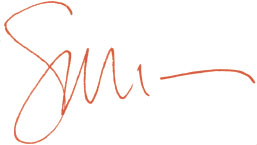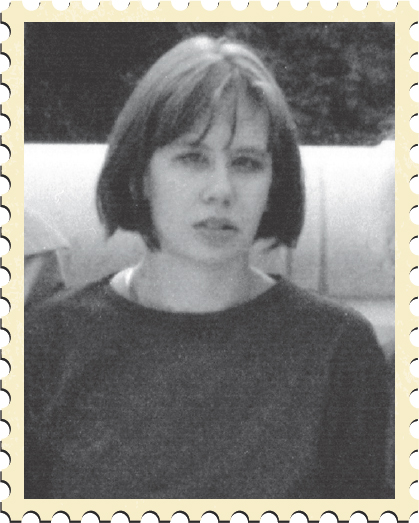

Saundra Mitchell
All right, look. You didn’t kill him.
You’re going to spend tonight in the laundry room, sitting on the dryer. Shuttered doors closed, and phone pulled as far as the cord will go, so you can complain about it to your best friend.
Your idiot brother, who swallows all the energy in the family, who screws up everything, is at the hospital. Again. Last time, he was drunk and passed out and nearly burned his foot off at his makeshift camp in the woods.
And today, you came home from school and he was drunk. Again. You could tell because of all the empty beer cans in the living room. He was passed out, again. You could tell by the way he was sprawled across the living room carpet. With his stupid mouth agape. With his stupid hand on his stupid chest.
Was he going to wake up? You dug your toes into his ribs, way harder than you had to, and pushed. Pushed hard. Later, you’ll think you kicked him, like straight-up soccer-goal kicked him, but you didn’t. Guilt magnifies things, but the truth is, you shoved him, and he didn’t wake up.
So you called mom and bitched, “He’s drunk. Again.”
You called your best friend and bitched, “He’s drunk. Again.”
But there’s a family history with alcohol. You’ve got a bunch of extended relatives who all have an extended relationship to the hooch (it’s funny how we’re all kind of proud of the grandmother who bootlegged during Prohibition). You know that passed out drunks usually wake up. Or move. Or something.
So when you got nervous, and checked to see if he was breathing, he was. His heart was beating. And he did smell like beer. You did call your mother. That’s it. Those are the facts in evidence. As soon as you realized that all the pill bottles in the kitchen window were empty, you did the right thing.
You called Mom. You called Dad. You helped them carry your brother to the car in a green and yellow crocheted blanket so they could take him to the hospital. You knew better than to call 911, because ambulances are expensive, and nobody in the family can afford them.
And now you’re holed up in the laundry room, air thick and warm and spring fresh, and you’re going to rail about it for a while. How he always does this. How he runs away on the holidays and screws up birthdays, and how he’s so busy destroying everything around him that you may as well not even exist.
After a while, you’ll get scared. You’ll bluster about how you’re going to kill him when he gets home from the hospital. Eventually, you’ll just hope. When the other line rings, you won’t say anything when your mother tells you that your brother is dead.
You won’t hear anything, either. Later, the details will get filled in, passively, randomly. Pumped his stomach, but it was already too late. Took all of his antidepressants, blood alcohol level was negligible.
You’ll go through his room and discover somebody else was in the house that day, because all of his Metallica tapes are missing. There will be a funeral where you walk out on God, and so many people in the house, and for some reason, Mom will bring that yellow and green blanket home.
When you get evicted from public housing—bloodlessly informed that you no longer meet minimum occupation requirements for a three-bedroom apartment—the blanket will go with you. In the new apartment, it’ll be there, on the couch. On the chair. You’ll put it away and wish you could burn it. It’s a shroud, exactly the shape of death; you’ll hate it because sometimes you’ll need a break from hating yourself.
But that afghan didn’t kill him, and neither did you. It doesn’t matter that you tried to OD two years ago, taking pills off that same windowsill. He wasn’t thinking about you that day. It wasn’t your idea. You didn’t pull the trigger; there wasn’t even a trigger to be pulled. Your brother was mentally ill and couldn’t get the treatment he needed. He self-medicated until he couldn’t self-medicate any more. It had nothing to do with you.
Nevertheless, it’s going to be a while (a couple of decades at least) before you realize all that. Before you realize that we’re all dead for longer than we’re ever alive. Before you realize that shoving him with your foot isn’t the same as kicking him with jackboots. Before you understand that you were there that day, you were one of the players, but the story wasn’t about you at all.
Once upon a time, there was a sick little boy, and he killed himself six months before his fifteenth birthday. He had a sister, and she cannot forget.
But know that eventually, you can forgive. Him. Yourself. The world. You’ll write a book and put his name on the dedication page. That’s the best you’ll be able to do, a little bit of immortality catalogued by the Library of Congress.
And today, you did the best that you could. Start the dryer again, because the sound is soothing, and wait for the call that’s coming. It changes everything, but listen to me; this is the truth:
You didn’t kill him. It’s not your fault.


![]() Saundra Mitchell has been a phone psychic, a car salesperson, a denture deliverer, and a layout waxer. She’s dodged trains, endured basic training, and hitchhiked from Montana to California. She teaches herself languages, raises children, and makes paper for fun. She’s also the author of Shadowed Summer (2009), The Vespertine (2011), The Springsweet (2012), and the forthcoming Mistwalker. She always picks truth; dares are too easy.
Saundra Mitchell has been a phone psychic, a car salesperson, a denture deliverer, and a layout waxer. She’s dodged trains, endured basic training, and hitchhiked from Montana to California. She teaches herself languages, raises children, and makes paper for fun. She’s also the author of Shadowed Summer (2009), The Vespertine (2011), The Springsweet (2012), and the forthcoming Mistwalker. She always picks truth; dares are too easy.
![]() WHAT WAS YOUR FIRST JOB?
WHAT WAS YOUR FIRST JOB?
“Dog walking, I was thirteen. I lived in NYC so there was a pick-up-poop law. That part was kinda nasty, but I was so proud to be earning my own money. Spent most of it on candy, which we didn’t have in the house.”
Tracy White
![]()
“Movie theater popcorn popper.”
Cynthia Leitich Smith
![]()
“McDonalds, represent! I was 15 and worked the front register. Try not to be too jealous.”
Rhonda Stapleton
![]()
“Teaching piano at Lecuona Academy.”
Caridad Ferrer
![]()
“I worked for my best friend’s family at the carnival. They ran concession stands and I made funnel cake, sold cotton candy and caramel apples, and scooped sno-cones. That syrup does not come off.”
Jessica Corra
![]()
“Cutting wood and selling it by the side of the road.”
Kersten Hamilton
![]()
“I was a teenage tax collector. Seriously! By the time I was fourteen, I could talk knowledgeably about “millage” and the fiscal benefits of waiting until the “face period” to pay your real estate taxes.”
Beth Fantaskey
![]()
“Fry cook at White Castle.”
Marke Bieschke
![]()
“Paperboy!”
Geoff Herbach
![]()
“Writer.”
Riley Carney
![]()
“Vacuuming the floors at Barbara Ann’s, a department store ‘down the back’ in Secaucus. Practically every girl in town worked there as a salesgirl, and I vacuumed. Needless to say, I gossiped more than I worked!”
Michael Griffo
![]()
“Washing greasy dishes at a roadside diner.”
Katherine Longshore
![]()
“I started my own babysitting service when I was twelve. A quarter an hour.”
Ilsa J. Bick
![]()
“Babysitter, then lifeguard.”
Lauren Oliver
![]()
“I was a canvasser for the League of Conservation Voters when I was 14. I got mugged on my third day. Nobody believed me.”
Carrie Jones
![]()
“Mucking stalls in my aunt’s barn. (FYI, mucking stalls means shoveling out the horse poop.)”
Tera Lynn Childs
![]()
“Working at the local McDonald’s. I was even in a national commercial for them.”
Heather Davis
![]()
“Babysitting a nine-year-old demon spawn all summer when I was 13. First ‘real’ job, where I got the minimum wage? I was a hostess at the K Bob’s Steakhouse.”
Nikki Loftin
![]()
“Babysitter, followed by camp counselor, followed by one of those people who dresses up in colonial costume and gives tours of The Freedom Trail.”
Leila Sales
![]()
“Waiting tables at Paco’s Mexican Grill when I was fifteen. I came home smelling like chips and salsa everyday. It was pretty gross.”
Stacey Jay
![]()
“McDonald’s cashier, complete with polyester uniform that gave me a rash in my armpits.”
Amy Kathleen Ryan
![]()